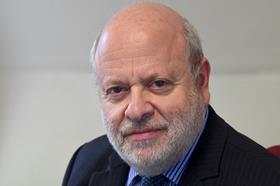It was not only President Trump patting his friend Vladimir’s hand last week in greeting at a military base in Anchorage, Alaska which showed that there is now a change of direction in doing business with Russia.

The same change was highlighted in a Politico report last week on English solicitors undertaking more business with Russian oligarchs and their companies, headed ‘Britain’s lawyers are refusing to turn their back on Russian money’.
Who knew that the invasion of Ukraine would throw up issues which go to the heart of what it means to be a lawyer or a judge? These jurisprudential conundrums are not going away, and remain acute.
The Politico article reveals interesting statistics. In 2024, there was a rise to 60 Russian litigants in our commercial courts, the highest figure since records began. Around 80% of those had legal representation, up from only 30% the year before; this seems to be due to a huge rise in the previous cap on legal fees imposed by the UK government. The cap has been increased fourfold since the war began, with clients now able to pay up to £4 million to each law firm, depending on the circumstances.
Regarding the challenges facing lawyers acting for Russian clients, we have seen arguments play out over whether lawyers should be identified with their client’s interests.
The need not to identify lawyers with clients has never been stronger – see the actions of the same hand-patting US President against US lawyers and law firms perceived to have crossed him (no hand-patting, but ferocious executive orders).
Arguing in favour of non-identification does not, however, sit well in the social media age when lawyers are constantly announcing on various platforms how pleased they are for having promoted their clients’ interests (in some instances expressly saying how much they agree with those interests), when notifying the world of the wonders achieved in this or that court case or completed transaction.
However, there is another and newer argument playing out, hinted at in the article. As was obvious from the government’s recent industrial and trade strategies, the legal sector has now been presented as one of the UK’s great economic success stories, underpinning the government’s wish to grow our economy.
Read more from Goldsmith
The most recent data from the Office for National Statistics showed that revenues for the legal sector grew to £4.55 billion in June, 7% up on the same month last year, and 13.8% higher than in May this year, outperforming the UK economy as a whole.
This kind of growth can only continue if we are not too sniffy about whom we represent, be it Russian oligarchs or others of whom large sections of society might disapprove. What used to be rolled out for the arms industry is now being put forward on behalf of the legal sector – it is good for business.
But not everyone agrees. And either side can take shelter under the umbrella of its self-righteousness.
Those who disagree, like Helen Taylor of Spotlight on Corruption, can argue, as cited in the article, that law firms are not just ordinary businesses, but members of a public profession who enjoy certain benefits from their status, like professional secrecy, entrusted to them on the basis that they act ethically and in keeping with the public interest. In other words, legal services are not like arms sales. This matters because the wealth being protected by UK lawyers and our rule of law has come from a kleptocratic regime without the rule of law.
The other side can argue not only that the activity is good for the economy, but, to counter the ethical naysayers, that the ethical arguments come down on their side. Everyone is entitled to a lawyer in order to be able to access justice, even Russian oligarchs from a warmongering and kleptocratic regime, because lawyers are the last resort for those denied justice, and they should not be confused with their clients.
On and on it goes.
The courts have faced equally sharp challenges. Judge-focused arguments, rather like those facing lawyers, were recently tackled by the Supreme Court in the case of Eugene Shvidler, who is subject to sanctions. The Supreme Court had to decide how far courts should go in protecting individuals against the power of the state. How much weight should be given to proportionality, deference and the separation of powers between the executive and the judiciary?
There has been much commentary on the Shvidler case, in the Gazette and elsewhere, mostly focusing on the dissent by Lord Leggatt to the majority view that the sanctions against Eugene Shvidler should stand. Again, either side has the ability to claim that it is ethically right.
Of course, such debates are healthy in helping us clarify who we are and how we should properly act. But we don’t yet agree on the answers.
Jonathan Goldsmith is Law Society Council member for EU & International, chair of the Law Society’s Policy & Regulatory Affairs Committee and a member of its board. All views expressed are personal and are not made in his capacity as a Law Society Council member, nor on behalf of the Law Society.































3 Readers' comments